Bridging versus Bonding Social Capital in Entrepreneurs’ Networks: The Case of Post-Conflict Western Balkans
Abstract
1. Introduction
1.1. Social Capital and Entrepreneurship
1.2. Bridging and Bonding Social Capital
1.3. Strong and Weak Ties
1.4. Research Questions
- What factors explain the incidence of cross-ethnic cooperation and employment?
- What is the role of entrepreneurs’ bridging and bonding relationships in facilitating social capital?
- What forms of cross-ethnic business networks exist?
2. Materials and Methods
Research Methods and Data
3. Results
4. Discussion
4.1. Entrepreneurs’ Bridging Social Capital
4.2. The Balance between Bridging and Bonding Social Capital
4.3. Inclusive, Exclusive, and Hidden Business Networks
5. Conclusions
Author Contributions
Funding
Institutional Review Board Statement
Informed Consent Statement
Data Availability Statement
Acknowledgments
Conflicts of Interest
References
- Eriksen, H.T. Ethnicity and Nationalism: Anthropological Perspectives, 1st ed.; Pluto Press: London, UK, 1993. [Google Scholar]
- Van Dyke, V. The individual, the state, and ethnic communities in political theory. World Politics 1977, 29, 343–369. [Google Scholar] [CrossRef]
- Barth, F. Ethnic groups and boundaries: The social organization of culture difference. Geogr. Rev. 1972, 62, 9–38. [Google Scholar] [CrossRef]
- Ramet, S. The dissolution of Yugoslavia: Competing narratives of resentment and blame. Südost Eur. 2007, 55, 26–69. [Google Scholar]
- Bieber, F. Bosnia-Herzegovina and Lebanon: Historical lessons of two multireligious states. Third World Q. 2000, 21, 269–281. [Google Scholar] [CrossRef]
- Žagar, M. Diversity management. Evolution of concepts. In Treaties and Documents No. 52; Brezigar, S., Lavskis, P., Solem, E.K., Žagar, M., Eds.; Institute of Ethnic Studies: Ljubljana, Slovenia, 2007; pp. 6–38. [Google Scholar]
- Bieber, F. Partial Implementation, Partial Success: The Case of Macedonia. In New Challenges to Power-sharing: Institutional and Social Reform in Divided Societies; O’Flynn, I., Russell, D., Eds.; Pluto: London, UK, 2005; pp. 107–122. [Google Scholar] [CrossRef]
- Colletta, N.J.; Cullen, M.L. The Nexus between Violent Conflict, Social Capital and Social Cohesion: Case Studies from Cambodia and Rwanda; Social Capital Initiative Working Paper 23; World Bank: Social Development Department: Washington, DC, USA, 2000. [Google Scholar]
- Fukuyama, F. Social capital and development: The coming agenda. SAIS Rev. 2002, 22, 23–37. [Google Scholar] [CrossRef]
- Granovetter, M.S. The strength of weak ties. Am. J. Sociol. 1973, 78, 1360–1380. [Google Scholar] [CrossRef]
- Allport, W.G. The Nature of Prejudice; Perseus Publishing: New York, NY, USA, 1954. [Google Scholar]
- Putnam, R.D.; Leonardi, R.; Nanetti, R.Y. Making Democracy Work: Civic Traditions in Modern Italy; Princeton University Press: Princeton, NJ, USA, 1993. [Google Scholar]
- Coleman, J.S. Social capital in the creation of human capital. Am. J. Sociol. 1988, 94, S95–S120. [Google Scholar] [CrossRef]
- Bourdieu, P. The social space and the genesis of groups. Theory Soc. 1985, 14, 723–744. [Google Scholar] [CrossRef]
- Bourdieu, P. Forms of capital. In Handbook of Theory and Research for the Sociology of Education; Richards, C.J., Ed.; Green-Wood Press: New York, NY, USA, 1986; pp. 241–258. [Google Scholar]
- Putnam, R.D. Bowling Alone—The Collapse and Revival of American Community; Simon and Schuster: New York, NY, USA, 2000. [Google Scholar] [CrossRef]
- Ostrom, E.; Ahn, T.K. Introduction. In Foundations of Social Capital; Ostrom, E., Ahn, T.K., Eds.; Edward Elgar Publishing Limited: Cheltenham, UK, 2003; pp. xi–xxxix. [Google Scholar]
- Woolcock, M.; Narayan, D. Social capital: Implications for development theory, research, and policy. World Bank Res. Obs. 2000, 15, 225–249. [Google Scholar] [CrossRef]
- Westlund, H. Implications of Social Capital for Business in the Knowledge Economy. In Proceedings of the International Forum on Economic Implication of Social Capital, Tokyo, Japan, 24–25 March 2003; Economic and Social Research Institute Cabinet Office: Tokyo, Japan, 2003. [Google Scholar]
- Fukuyama, F. Trust: The Social Virtues and the Creation of Prosperity; Free Press: New York, NY, USA, 1995. [Google Scholar] [CrossRef]
- Witt, P. Entrepreneurs’ networks and the success of start-ups. Entrep. Reg. Dev. 2004, 16, 391–412. [Google Scholar] [CrossRef]
- Dakhli, M.; De Clercq, D. Human capital, social capital, and innovation: A multi-country study. Entrep. Reg. Dev. 2004, 16, 107–128. [Google Scholar] [CrossRef]
- Portes, A. Social capital: Its origins and applications in modern sociology. Annu. Rev. Sociol. 1998, 24, 1–24. [Google Scholar] [CrossRef]
- OECD. The Well-Being of Nations: The Role of Human and Social Capital; OECD Publications: Paris, France, 2001. [Google Scholar]
- Westlund, H. Social capital and regional development: Research achievements and remaining problems. Ital. J. Reg. Sci. 2012, 11, 7–22. [Google Scholar]
- Healy, T. The Measurement of Social Capital at International Level. In Proceedings of the International Conference on the Measurement of Social Capital, London, UK, 25–27 September 2002; Available online: http://www.oecd.org/innovation/research/2380281.pdf (accessed on 6 February 2021).
- Westlund, H.; Bolton, R. Local social capital and entrepreneurship. Small Bus. Econ. 2003, 21, 77–113. [Google Scholar] [CrossRef]
- Westlund, H.; Nilsson, E. Measuring enterprises’ investments in social capital: A pilot study. Reg. Stud. 2005, 39, 1079–1094. [Google Scholar] [CrossRef]
- Glaeser, E.; Laibson, D.; Sacerdote, B. An Economic Approach to Social Capital. Econ. J. 2002, 112, 437–458. [Google Scholar] [CrossRef]
- Westlund, H.; Larsson, J.P. Social capital and regional development: An introduction. In Handbook of Social Capital and Regional Development; Wesltund, H., Larsson, J.P., Eds.; Edward Elgar Publishing: London, UK, 2016; pp. 1–23. [Google Scholar] [CrossRef]
- Putnam, D.R.; Feldstein, M.L. Better Together: Restoring the American Community; Simon and Schuster: New York, NY, USA, 2004. [Google Scholar]
- Poulsen, A.; Svendsen, G.T. Love Thy Neighbour: Bonding Versus Bridging Trust; Working Paper 05-7; University of Aarhus, Aarhus School of Business, Department of Economics: Aarhus, Denmark, 2005. [Google Scholar]
- Wollebaek, D.; Lundåsen, S.W.; Trägårdh, L. Three forms of interpersonal trust: Evidence from Swedish municipalities. Scand. Political-Stud. 2012, 35, 319–346. [Google Scholar] [CrossRef]
- Pickering, P.M. Generating social capital for bridging ethnic divisions in the Balkans: Case studies of two Bosniak cities. Ethn. Racial Stud. 2006, 29, 79–103. [Google Scholar] [CrossRef]
- Pieterse, J.N. Social capital and migration: Beyond ethnic economies. Ethnicities 2003, 3, 29–58. [Google Scholar] [CrossRef]
- Tolciu, A. Migrant entrepreneurs and social capital: A revised perspective. Int. J. Entrep. Behav. Res. 2011, 17, 409–427. [Google Scholar] [CrossRef]
- Goyal, S. Connections: An Introduction to the Economics of Networks; Princeton University Press: Princeton, NJ, USA, 2007. [Google Scholar]
- Lechner, C.; Dowling, M. Firm networks: External relationships as sources for the growth and competitiveness of entrepreneurial firms. Entrep. Reg. Dev. 2003, 15, 1–26. [Google Scholar] [CrossRef]
- Van Der Leij, M.; Goyal, S. Strong ties in a small world. Rev. Netw. Econ. 2011, 10, 1–22. [Google Scholar] [CrossRef][Green Version]
- Aldrich, H.; Zimmer, C. Entrepreneurship through social networks. In The Art and Science of Entrepreneurship; Sexton, D., Smilor, D., Eds.; Ballinger Press: Cambridge, MA, USA, 1986; pp. 3–24. [Google Scholar]
- Katz, N.; Lazer, D.; Arrow, H.; Contractor, N. Network theory and small groups. Small Group Res. 2004, 35, 307–332. [Google Scholar] [CrossRef]
- Drakopoulou, D.S.; Keles, J.Y. Expanding the Networks of Disadvantaged Entrepreneurs. A Background Paper for the OECD Centre for Entrepreneurship, SMEs and Local Development. 2014. Available online: https://www.researchgate.net/publication/275659239_Expanding_the_networks_of_disadvantaged_entrepreneurs (accessed on 6 February 2021).
- Friedkin, N. A test of structural features of Granovetter’s strength of weak ties theory. Soc. Netw. 1980, 2, 411–422. [Google Scholar] [CrossRef]
- Marin, A.; Mitchell, R.K.; Lee, J.H. The vulnerability and strength duality in ethnic business: A model of stakeholder salience and social capital. J. Bus. Ethic. 2015, 130, 271–289. [Google Scholar] [CrossRef]
- World Economic Forum. The Global Competitiveness Report 2016/2017; World Economic Forum: Geneva, Switzerland, 2018; Available online: http://www3.weforum.org/docs/GCR2016-2017/05FullReport/TheGlobalCompetitivenessReport2016-2017_FINAL.pdf (accessed on 17 March 2021).
- European Investment Bank. Assessment of Financing Needs of SMEs in the Western Balkan Countries: Country Report Macedonia; EIB: London, UK, 2016; Available online: https://www.eib.org/attachments/efs/assessment_of_financing_needs_of_smes_fyrom_en.pdf (accessed on 10 March 2021).
- Camaj, L. Media Use and Political Trust in an Emerging Democracy: Setting the Institutional Trust Agenda in Kosovo. Int. J. Commun. 2014, 8, 187–209. [Google Scholar]
- Malazogu, L.; Kllokoqi, S. Translation of Trust: Perception of Representation and Participation; Series: Elections 6; Democracy for Development Institute: Priština, Kosovo, 2013. [Google Scholar]
- UNDP. The Ties that Bind: Social Capital in Bosnia and Herzegovina; National Human Development Report; UNDP: Sarajevo, Bosnia and Herzegovina, 2009; Available online: http://hdr.undp.org/sites/default/files/bosnia_nhdr_2009_en_0.pdf (accessed on 10 March 2021).
- Marković, N.; Damjanovski, I. The uncharted political realm—social capital, political values and practices stimulating informal networks in Macedonia. New Balk. Politics 2015, 17, 10–19. [Google Scholar]
- Håkansson, P.; Sjöholm, F. Who do you trust? Ethnicity and trust in Bosnia and Herzegovina. Eur. Stud. 2007, 59, 961–976. [Google Scholar] [CrossRef][Green Version]
- Håkansson, P.; Hargreaves, S. Trust in Transition: Generalised Trust in Bosnia and Herzegovina; Balkan Analysis Group: Sarajevo, Bosnia and Herzegovina, 2004; Available online: https://portal.research.lu.se/ws/files/5677105/1388890.pdf (accessed on 16 March 2021).
- Klekovski, S.; Nuredinoska, E.; Stojanova, D. Trust in Macedonia: General Trust and Trust in Institutions, Trust in Civil Society, Knowledge and Opinion about Civil Society Organization; Macedonian Center for International Cooperation: Skopje, North Macedonia, 2010. [Google Scholar]
- Centre for Social Research Analitika. Survey Results: A High Degree of Distrust in Political Parties and Government Institutions in Bosnia and Herzegovina; Centre for Social Research Analitika: Sarajevo, Bosnia and Herzegovina, 2014; Available online: https://www.analitika.ba/sites/default/files/publikacije/povjerenje_fact_sheet_english.pdf (accessed on 17 March 2021).
- Riinvest Institute. Improving the Kosovo Serbian Business Community Involvement in Economic Activities in Kosovo; Riinvest Institute: Priština, Kosovo, 2012; Available online: https://www.riinvestinstitute.org/uploads/files/2016/October/17/imp-eng_en1476694919.pdf (accessed on 17 March 2021).
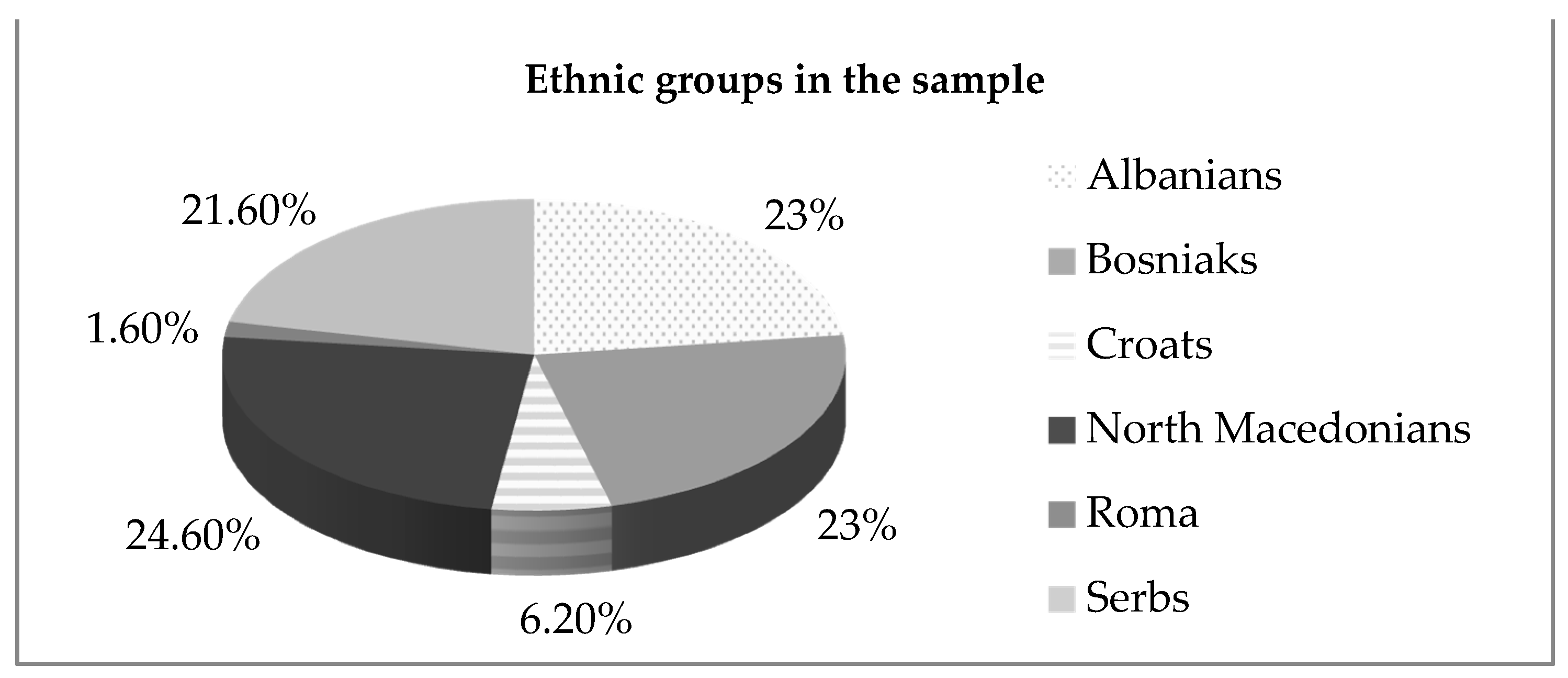

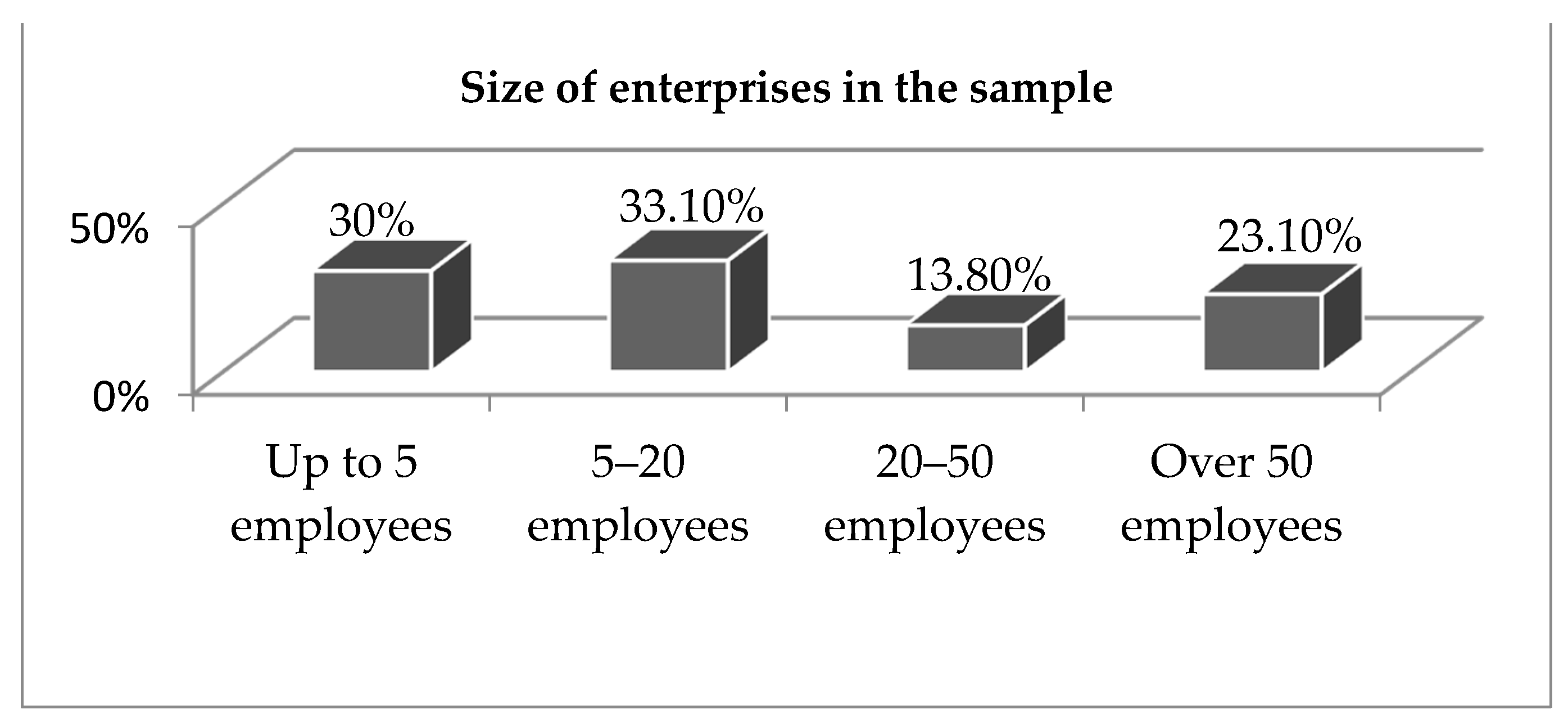
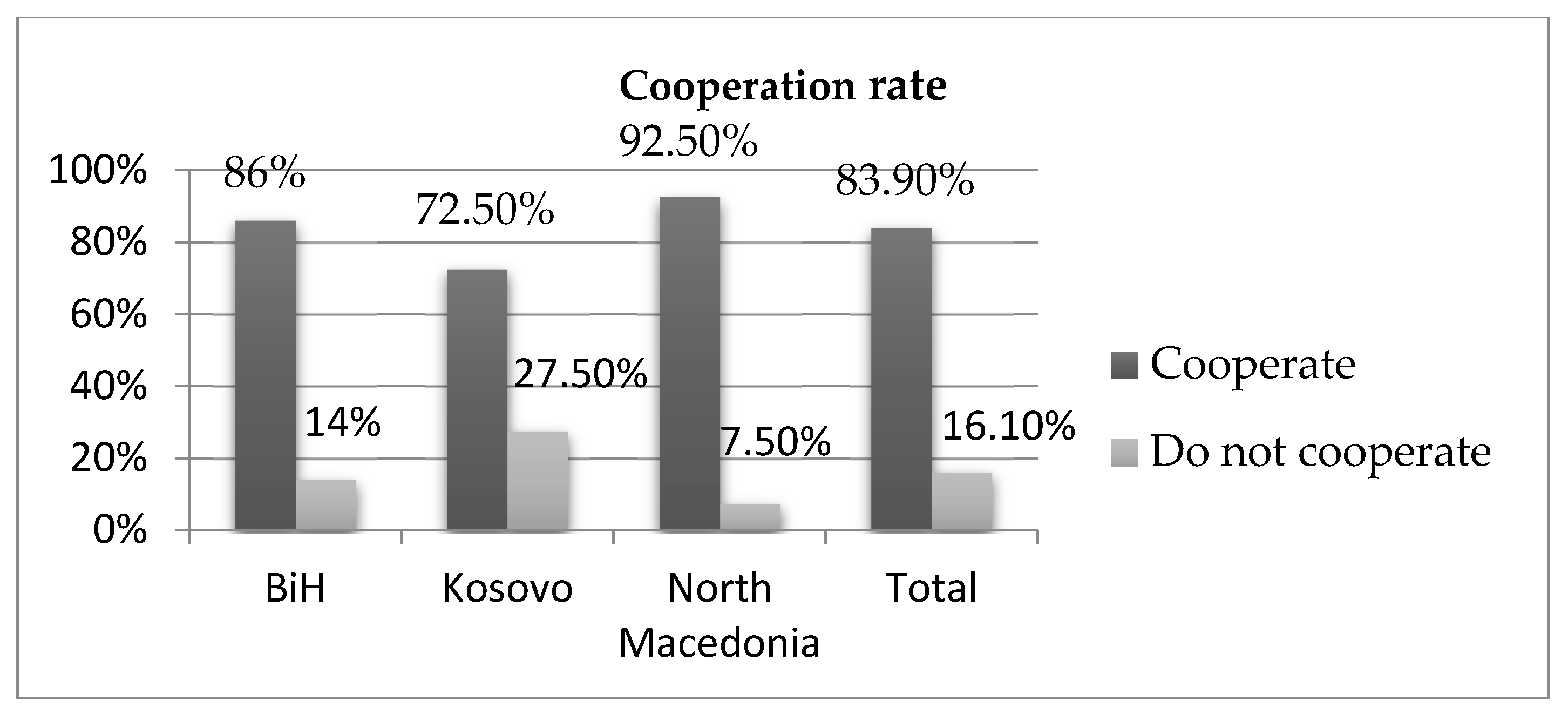
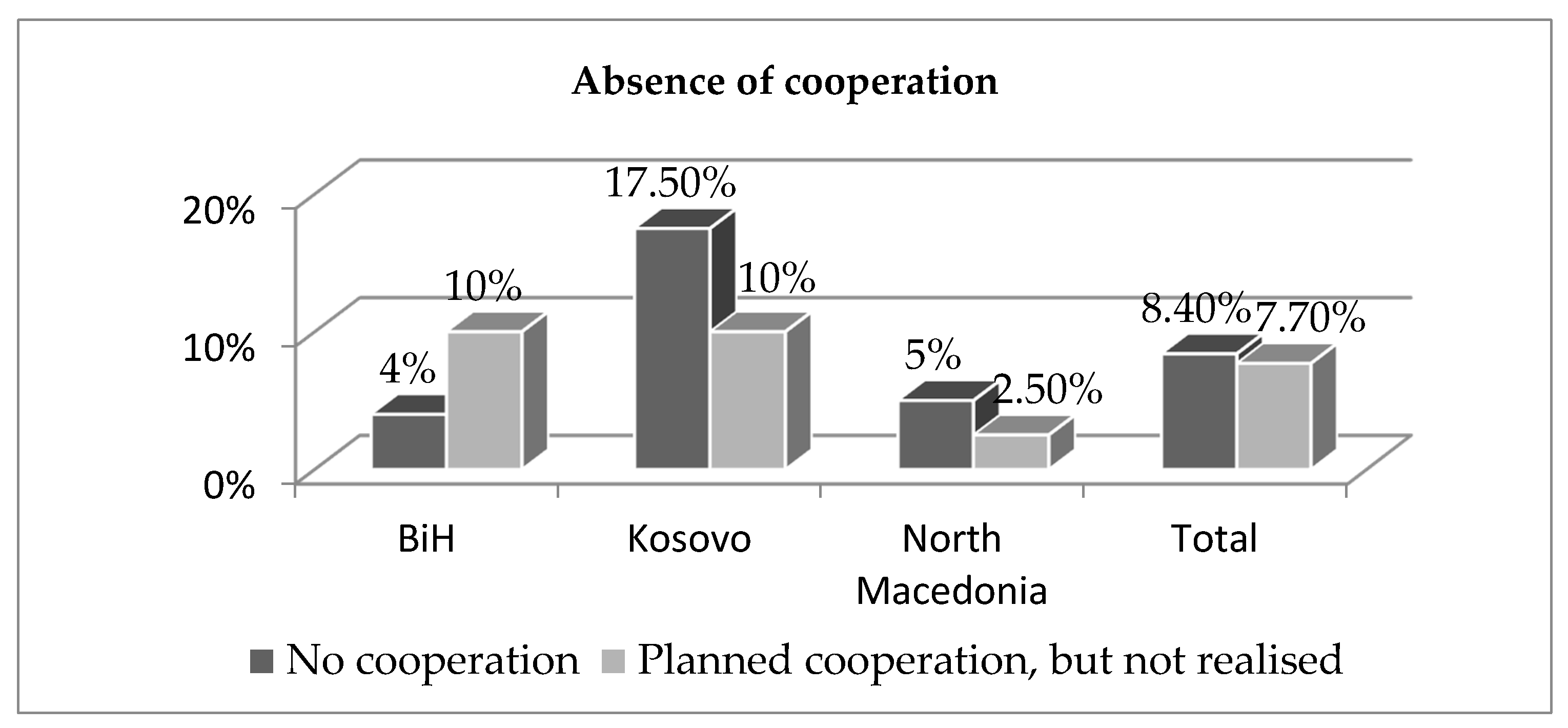
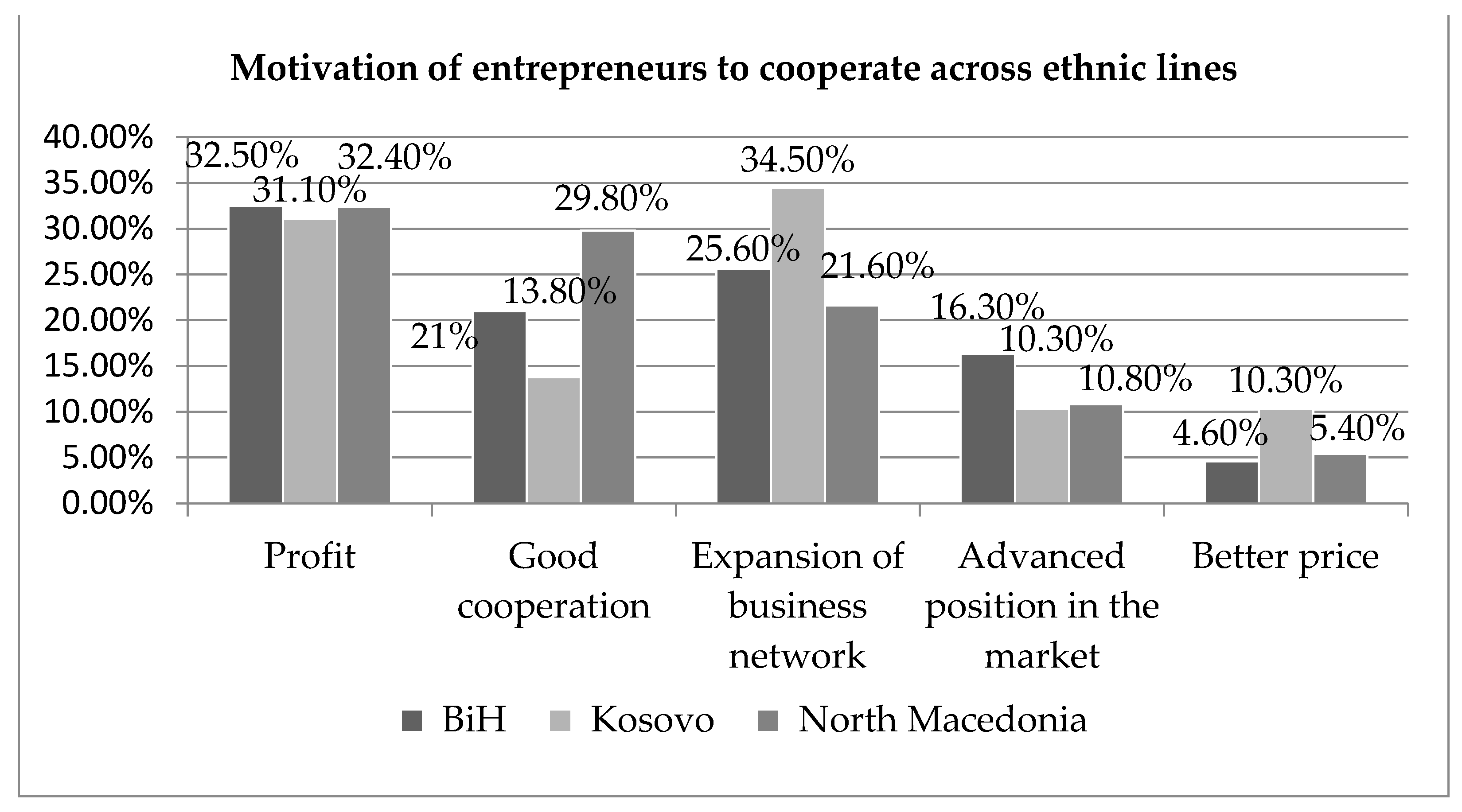
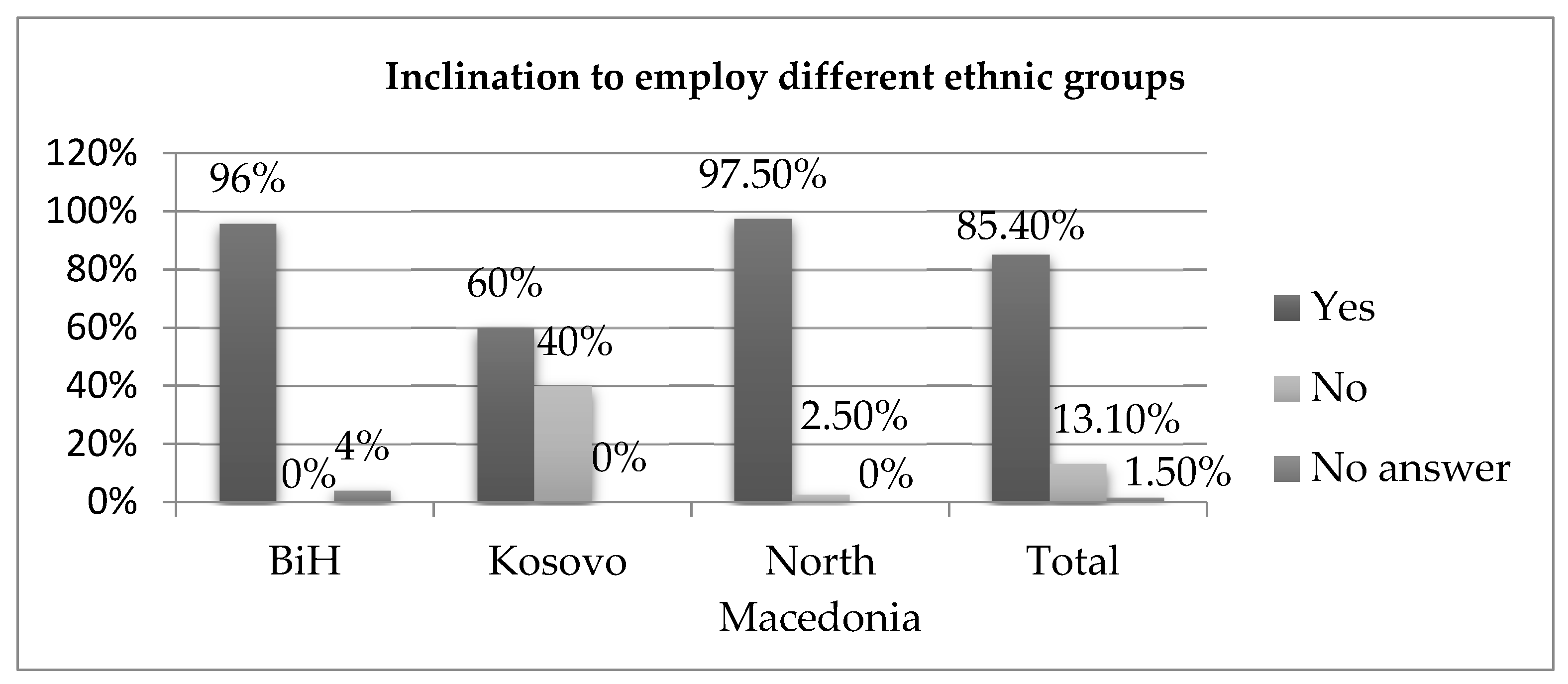

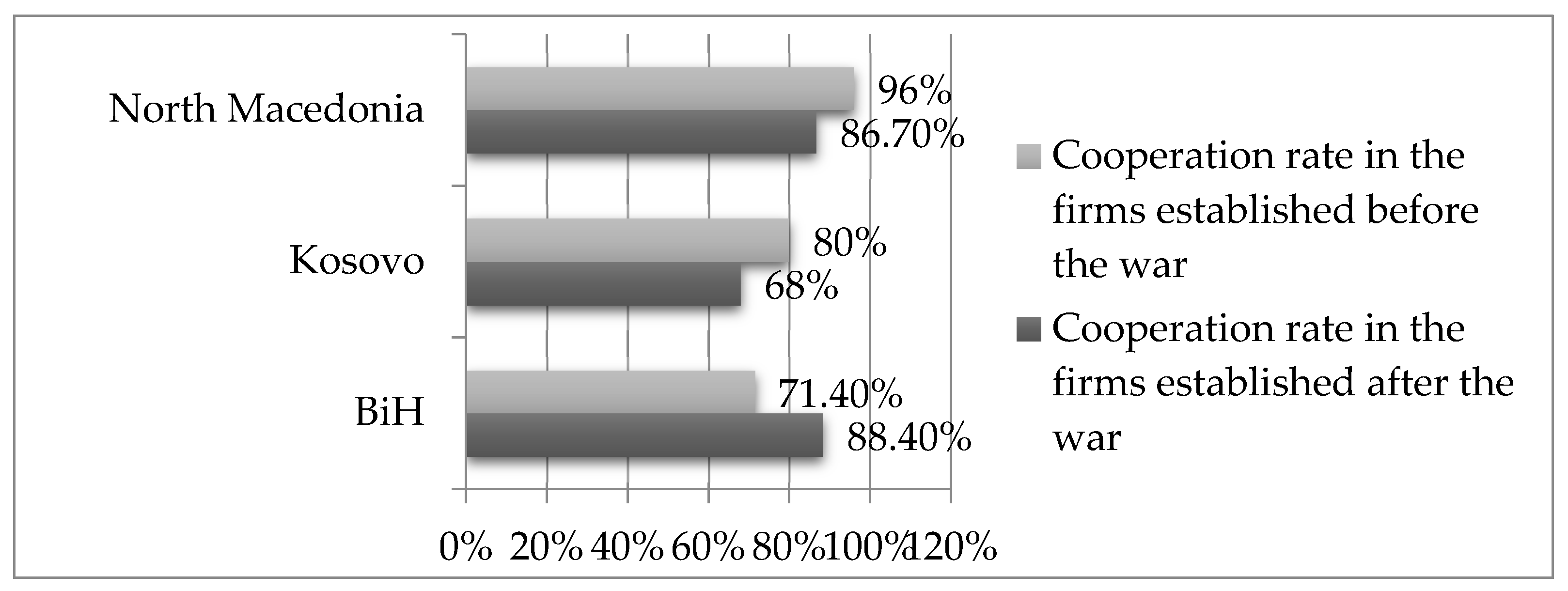
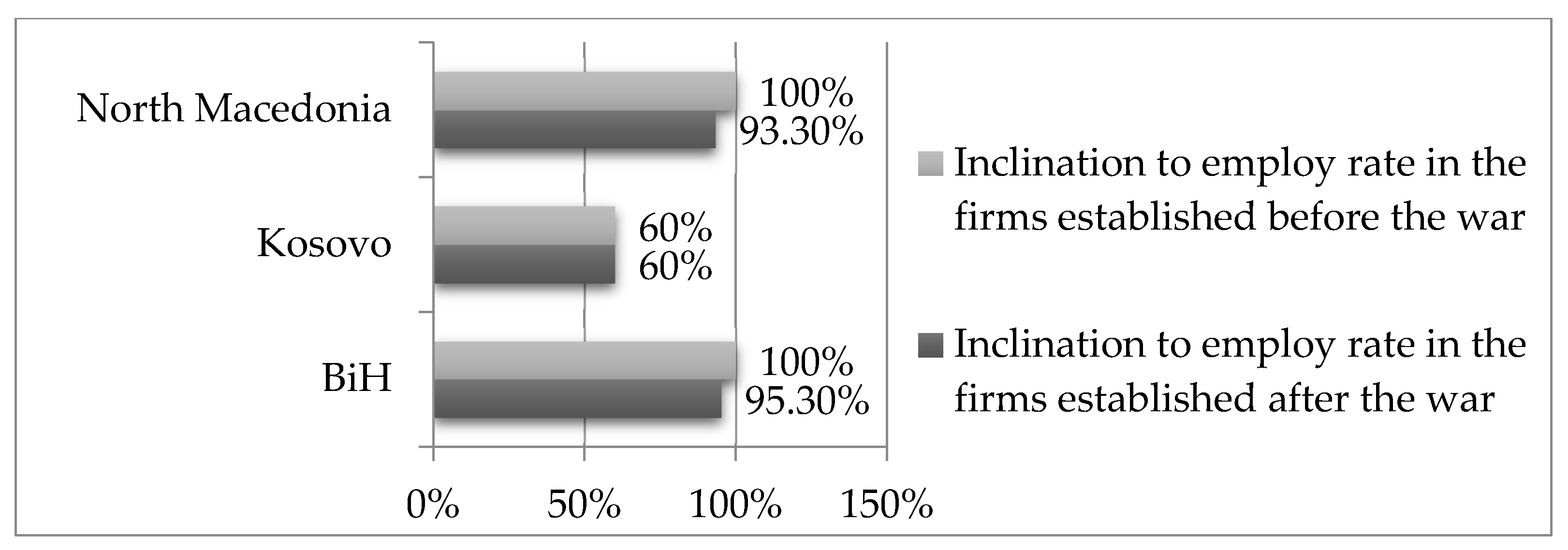
Publisher’s Note: MDPI stays neutral with regard to jurisdictional claims in published maps and institutional affiliations. |
© 2021 by the authors. Licensee MDPI, Basel, Switzerland. This article is an open access article distributed under the terms and conditions of the Creative Commons Attribution (CC BY) license (http://creativecommons.org/licenses/by/4.0/).
Share and Cite
Kopren, A.; Westlund, H. Bridging versus Bonding Social Capital in Entrepreneurs’ Networks: The Case of Post-Conflict Western Balkans. Sustainability 2021, 13, 3371. https://doi.org/10.3390/su13063371
Kopren A, Westlund H. Bridging versus Bonding Social Capital in Entrepreneurs’ Networks: The Case of Post-Conflict Western Balkans. Sustainability. 2021; 13(6):3371. https://doi.org/10.3390/su13063371
Chicago/Turabian StyleKopren, Ana, and Hans Westlund. 2021. "Bridging versus Bonding Social Capital in Entrepreneurs’ Networks: The Case of Post-Conflict Western Balkans" Sustainability 13, no. 6: 3371. https://doi.org/10.3390/su13063371
APA StyleKopren, A., & Westlund, H. (2021). Bridging versus Bonding Social Capital in Entrepreneurs’ Networks: The Case of Post-Conflict Western Balkans. Sustainability, 13(6), 3371. https://doi.org/10.3390/su13063371





